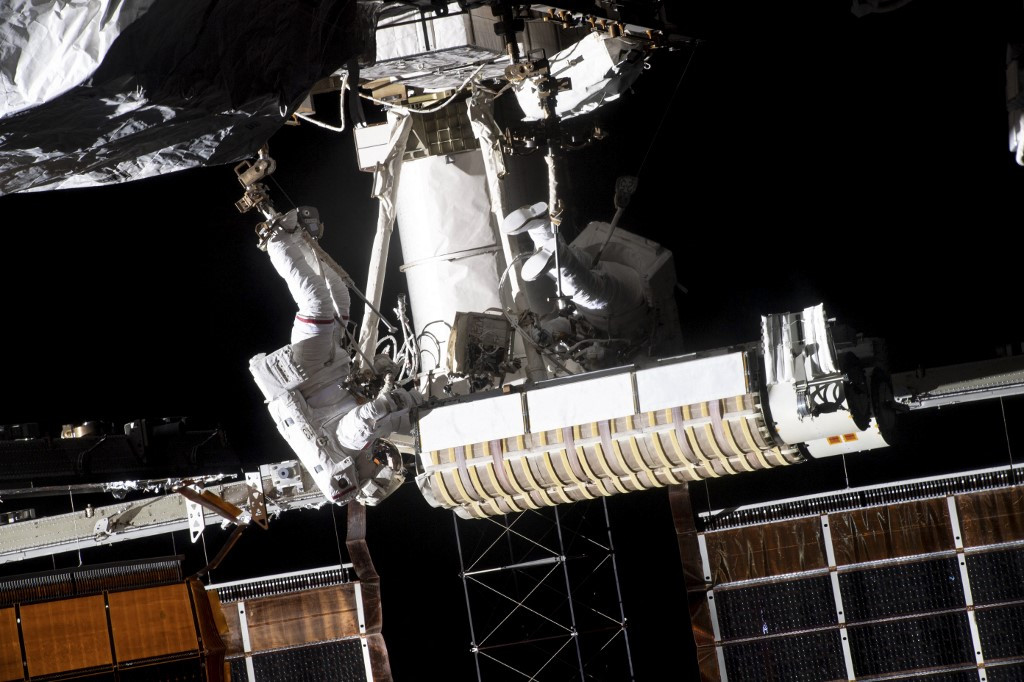Popular Reads
Top Results
Can't find what you're looking for?
View all search resultsPopular Reads
Top Results
Can't find what you're looking for?
View all search resultsIndonesia’s foreign, defense policies amid space militarization
The number of tests of Anti-Satellite Weapon Systems (ASAT) between 2007 and 2020 suggests that space will become a battleground in the not-so-distant future.
Change text size
Gift Premium Articles
to Anyone
 This NASA photo obtained June 20, 2021 shows Expedition 65 Flight Engineer Thomas Pesquet(L) of ESA (European Space Agency) attached to an articulating portable foot restraint, next to US astronaut Shane Kimbrough on June 16, 2021. A French and an American astronaut embarked on another spacewalk on June 20, 2021 to complete the installation of new solar panels to boost power supplies to the International Space Station (ISS). (AFP/Handout/NASA)
This NASA photo obtained June 20, 2021 shows Expedition 65 Flight Engineer Thomas Pesquet(L) of ESA (European Space Agency) attached to an articulating portable foot restraint, next to US astronaut Shane Kimbrough on June 16, 2021. A French and an American astronaut embarked on another spacewalk on June 20, 2021 to complete the installation of new solar panels to boost power supplies to the International Space Station (ISS). (AFP/Handout/NASA)
Many countries are racing to become emerging space powers to be able to exercise influence over others because of their predominance in space politics and technology. As the notable space law specialist Stephen Gorove put it, “Whoever controls cosmic space rules not only the Earth, but the entire cosmos”.
Dating back to the Cold War era, the space race was originally dominated by just two major players, namely the Soviet Union and the United States, both of which aspired to be technological hegemons. These kinds of tensions have the potential to devolve into a new dimension of warfare.
To avoid space becoming the next battlefield, the world established a fundamental law, known as the Outer Space Treaty of 1967 (OST 1967). The convention established the fundamental dos and don’ts in outer space and further urged states to cooperate and use their freedom of access to outer space for peaceful purposes only, regardless of their technical or economic level.
The intention of OST 1967 was crystal clear. All states should use outer space for peaceful reasons only, such as activities that enhance human dignity and prosperity, even though the term ''peaceful'' remains a point of contention among both state actors and academics. No actions of aggression or hostility in outer space, including the testing of weapons of mass destruction and nuclear weapons, are included in the void space area.
On the other hand, outer space could increase military maneuverability in terrestrial combat. In the Gulf War (1991), during Operation Desert Shield, the US used satellite technology to expel Iraqi forces from Kuwait.

















